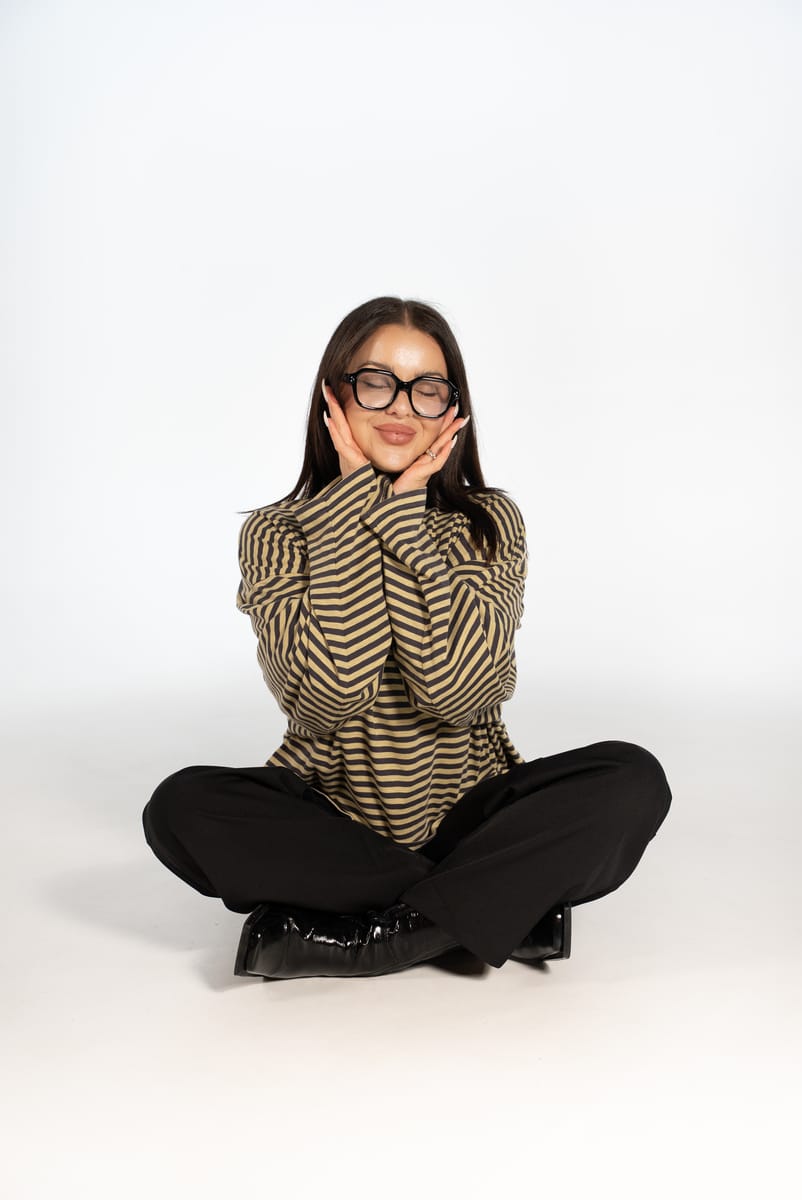
I recently watched Brian Park's content about going on a date with “the guy who has Aesop soap in his bathroom” and I nearly went into full body shock from PTSD.
I had to literally repeat in my head “it’s just a TikTok, it’s just a TikTok, it’s just a TikTok” before dry retching in the toilet and reminding myself I’m free of that world.
This goes beyond the performative male; this is something f*cking else entirely. A whole new beast, and it’s definitely not limited to gender (Plath girls, we’ll get to you shortly.)
This is intellectual theatre, or as Eugene Healey calls it, “performative knowledge.”
Basically, being smart is the new social flex, or appearing to be smart is.
Because being genuinely smart would require time, patience, and probably an academic citation (or at least a certification). This is more smart-coded: articulate enough to sound like you read theory, aesthetically aligned with curiosity and “big thinking brands”, and fluent in cultural references that say, I am not like the other dopamine scrollers.
As property and wealth grow increasingly out of reach for the average person, knowledge has become the new luxury. It's something you can own, wear, and use to separate yourself from the masses, but can’t buy.
Status used to be about what you had.
In the 2010s it was designer this, property that, enough avocados to make a large bowl of guac for your guests while entertaining in your high-rise apartment. Veuve Clicquot, the latest iPhone, the Saddle bag (you get the gist.)
In the 2020s, it’s about taste. Your niche, your playlists, your book recs, whether you’ve heard Frank Ocean's ultra super underground unreleased stuff from when he was in the womb.
Now, as AI flattens the information hierarchy and algorithms spit out endless content, knowledge itself becomes the final frontier of distinction. You can’t own property, but you can own a hot take on post-capitalist identity formation.
And when knowledge lives in your brain, it’s invisible to the rest of the world, and thus, must be performed.
So, let’s start with the most obvious archetype: the performative male intellectual.
You’ve seen him. You’ve probably dated him (for your sake I hope not, but if you have, how’s therapy treating you?)
This is The Guy Brian Park parodies so perfectly on TikTok: the creative director who spends the entire date talking at you about semiotics, referencing Deleuze between bites of sushi, and offering unsolicited critiques of the way you hold your chopsticks.
His intelligence isn’t about curiosity; it’s about dominance.
It’s intellectual negging, wielding theory as a power move. He collects niche references the way finance bros collect crypto, always on the hunt for the next “low-cap cultural insight.”
And the worst part is, for the majority, he’s not really learning. He’s signalling. He’s not really a thinker, more a curator of second-hand intelligence.
And this archetype, for all its arrogance, is just one side of the coin. Because women do it too. Just with better lighting and a stronger sense of irony.
If the male version of performative knowledge is loud, the female version is curated.
It’s intellect as aesthetic: intelligence softened, styled, and filtered through vibes.
Think: the literary girl reading The Bell Jar on a park bench in golden-hour light, annotated within an inch of its life, who cares more about being seen loving Sylvia Plath that actually caring about what she says.
This brings us to what I like to call The Prompt Gap (more on that tomorrow).
For now, the prompt gap is that widening divide between people who direct AI and those who get directed by it. AI has made information free, abundant, and contextless. Which means the new measure of intelligence isn’t what you know, it’s how you synthesise it.
So, people overcompensate. They curate references like outfits. They use intellectualism as a shield against being perceived as generic or automated. Because if ChatGPT can write the essay, how do you prove you’re still original?
You perform it. You perform thinking.
And brands are already catching on. Anthropic’s “Keep Thinking” campaign for Claude opened cafés and gave away “Thinking” embroidered caps. Literally turning cognition into merch.
Intellect has officially become an aesthetic. And brands, sensing our collective need to feel “above the algorithm,” are now selling thoughtfulness the same way they used to sell youth. The problem being that when everything is branding, even intelligence loses its edge.
True intelligence is humble. It listens. It evolves.
Performative intelligence panics at silence, and has to fill the gap. It needs to be seen thinking to prove it exists.
So, dear reader, if you do happen to find yourself across the table from someone dissecting Demna’s debut for Gucci while you’re just trying to enjoy your tuna roll, take it as a sign, and RUN. And if you ever catch yourself annotating Nietzsche in public for the camera, maybe ask who you’re trying to convince.
Because intellect that has to be performed isn’t intellect at all. It’s marketing, sweetie.
-Sophie Randell, Writer
Not going viral yet?
We get it. Creating content that does numbers is harder than it looks. But doing those big numbers is the fastest way to grow your brand. So if you’re tired of throwing sh*t at the wall and seeing what sticks, you’re in luck. Because making our clients go viral is kinda what we do every single day.
